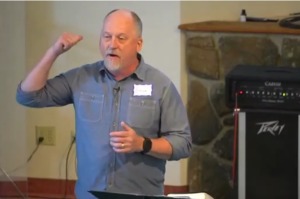Ecumenical Leader: Evangelism Must Not Lead to Hatred
Christian witness must not be destructive and cause hatred but rather must use "non-violent" methods, stated the head of a global church body.
The Rev. Samuel Kobia, the general secretary of the World Council of Churches, raised concern over Christian missions that were using aggressive evangelism tactics that although may be "efficient" short-term-wise are destructive in the long-term and "must be rejected."
"Mission … must be 'in Christ's way' or must be challenged," said Kobia last Friday, according to WCC. "In that sense, we hope that 2010 and 2011 will enable us to progress towards a better theory and practice of non-aggressive or non-violent form of evangelism…"
Kobia spoke in Edinburgh, Scotland, at a meeting in preparation for the centennial anniversary of the 1910 Edinburgh World Mission Conference – which is widely considered the starting point of the modern ecumenical movement. The WCC general secretary will conclude his visit to the United Kingdom and Ireland on Friday after a nearly two-week tour.
Although he called for "non-aggressive" evangelism, Kobia emphasized that Christians must keep the "bold witness" of Christ and God's kingdom that respects the different members of the Christian body ranging from Roman Catholics to evangelicals to Pentecostal churches.
"WCC has not abandoned the concern for evangelism, but we think it has to be embedded as part of a holistic mission," explained the WCC head, "and must be connected with the illumination and radiation brought by living missional communities."
Traditional denominations were also urged to make greater efforts to find ways to work with the newer Pentecostal and Charismatic movements that have brought a "spiritual revolution" to Christianity.
The World Council of Churches is based in Geneva and consists of 347 member churches, predominantly Anglican, Protestant and Orthodox. The Roman Catholic Church is not a member but cooperates with the WCC on a number of issues. The ecumenical body also claims to represent some 550 million Christians.




























